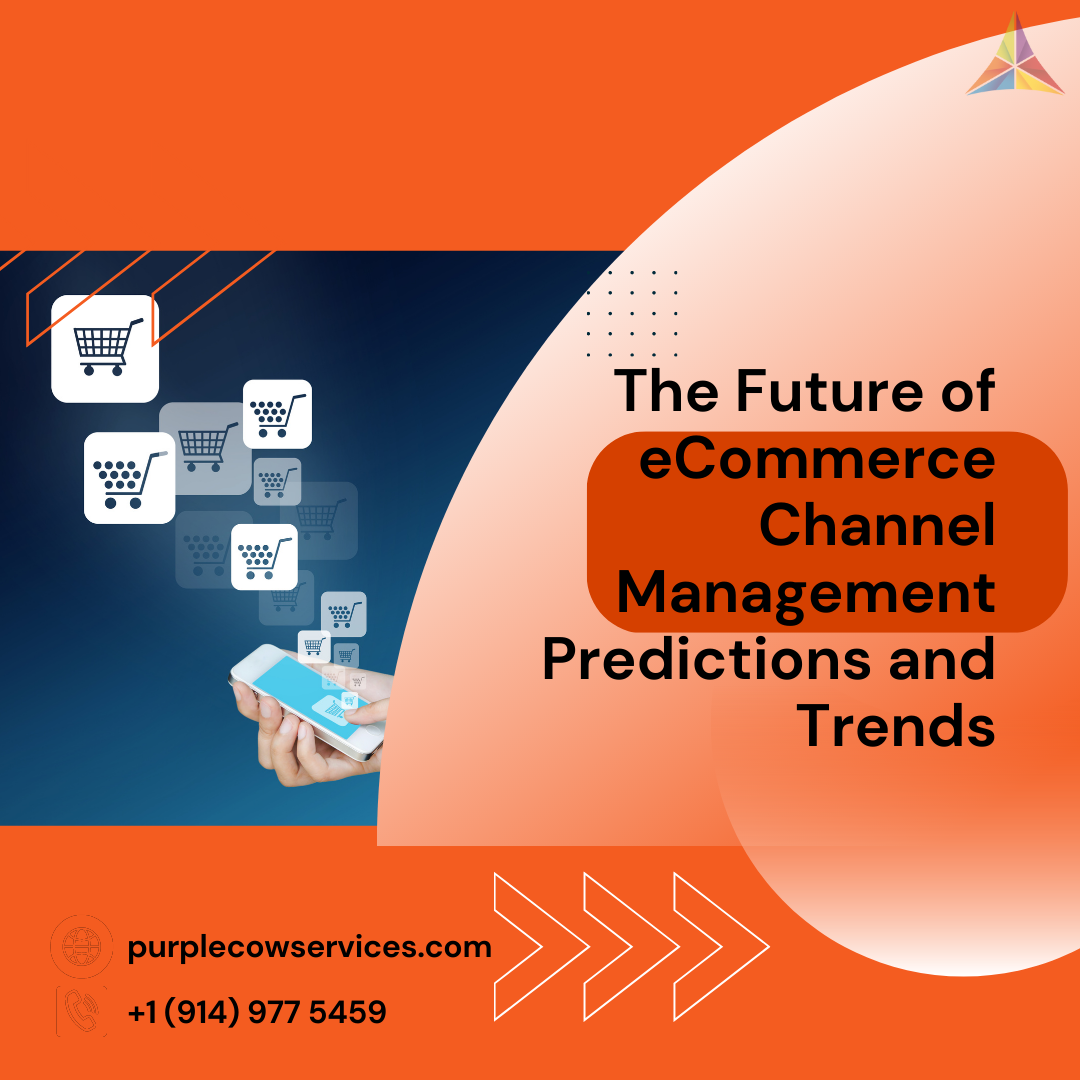eCommerce has grown exponentially over the past few years, with more and more businesses moving online to reach customers across the globe. As this trend continues to gain momentum, eCommerce channel management has become a crucial factor for businesses looking to succeed in the online marketplace.
Share This Story, Choose Your Platform!
With the ever-changing landscape of eCommerce, what does the future hold for channel management? In this blog, we will explore the predictions and trends for the future of eCommerce channel management.
The Rise of Artificial Intelligence
Artificial intelligence (AI) has already made its presence felt in the eCommerce industry. Chatbots and virtual assistants becoming increasingly popular for customer service. However, AI has the potential to revolutionize eCommerce channel management by automating tasks such as inventory management and product listings. This will enable businesses to streamline their operations, reduce costs, and improve efficiency. AI can also provide valuable insights into consumer behavior. This allows businesses to optimize their marketing strategies and offer personalized experiences to their customers.
Increased Importance of Mobile Commerce
Mobile commerce has been growing steadily over the past few years, with more and more consumers using their smartphones to make purchases. In fact, mobile commerce is expected to account for more than half of all eCommerce sales by 2023. This trend presents new opportunities and challenges for eCommerce channel management. Businesses will need to optimize their websites and online stores for mobile devices, and ensure that their products and services are easily accessible and user-friendly on smaller screens. Additionally, mobile app development will become increasingly important as businesses seek to create a seamless omnichannel experience for their customers.
Omnichannel Retailing
Omnichannel retailing refers to the seamless integration of all channels through which a business sells its products or services. This includes online channels such as websites, mobile apps, and social media, as well as offline channels such as physical stores and pop-up shops. Mainly, the goal of omnichannel retailing is to provide a consistent and personalized experience for customers across all channels. In the future, businesses will need to focus on developing a robust omnichannel strategy that integrates all channels, and provides customers with a seamless experience from discovery to purchase.
Social Commerce
Social media has already become a powerful tool for eCommerce. Platforms like Instagram and Facebook are offering businesses the ability to sell directly to their followers. However, the future of social commerce goes beyond just selling products on social media. Social media platforms will become increasingly important for product discovery, as consumers turn to social media for inspiration and recommendations. Additionally, social commerce will become more personalized, with businesses using data and AI to offer targeted recommendations and personalized experiences to their customers.
Increased Focus on Sustainability
Sustainability has become a growing concern for consumers, with more and more people looking for eco-friendly and socially responsible products. In the future, businesses will need to prioritize sustainability in their eCommerce channel management strategies, from sourcing sustainable materials to reducing carbon emissions in their supply chains. This will require businesses to take a holistic approach to sustainability, considering the entire lifecycle of their products and services, from production to disposal.
Additional Predictions and Trends for The Future of eCommerce Channel Management:
Voice Commerce
Voice commerce, or the ability to make purchases through voice-activated devices such as smart speakers, is a trend that is expected to grow in the coming years. With the rise of virtual assistants like Amazon’s Alexa and Google Assistant, voice commerce offers businesses a new channel to reach customers and provide personalized experiences.
Augmented Reality
Augmented reality (AR) has the potential to revolutionize the eCommerce industry. It enables customers to visualize products in 3D before making a purchase. Furthermore, AR can also enhance the customer experience by providing personalized recommendations and product information. In the future, businesses will need to invest in AR technology to provide a more immersive and engaging shopping experience for their customers.
Blockchain Technology
Blockchain technology has the potential to improve eCommerce channel management. It provides a secure and transparent way to track transactions and supply chains. This technology can help businesses reduce fraud and improve trust with their customers. In the future, businesses will need to explore the use of blockchain technology as well. As it will improve their operations and provide a more secure and transparent shopping experience for their customers.
Conclusion
The future of eCommerce channel management is exciting and full of potential. Businesses that embrace these trends and predictions will be better positioned to succeed in the ever-evolving world of eCommerce. From AI and mobile commerce to omnichannel retailing, social commerce, and sustainability, the future of eCommerce channel management is all about delivering personalized, seamless experiences to customers across all channels.
Looking to future-proof your ecommerce channel management strategy? Look no further than Purple Cow! We are experts in proactively predicting the trends in ecommerce channel management. From AI and mobile commerce to social commerce and sustainability, our team deals with it all. Stay ahead of the curve and provide personalized experiences for your customers with Purple Cow’s innovative channel management solutions.
Share This Story, Choose Your Platform!
In This Blog:

















